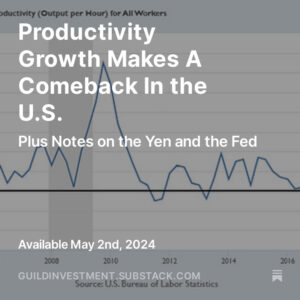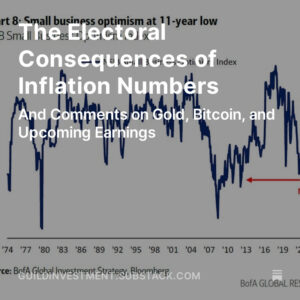Last week we wrote about the advent of central bank digital currencies, outlining the motivations that governments and central banks have for upstaging the rise of decentralized crypto networks such as bitcoin and Ethereum. This week we’ll take a look at a trend in communication from fiscal and monetary authorities, and study some regulatory trends in India, China, and elsewhere to ask: could more draconian restriction of cryptocurrencies be in the works — even in the developed world?
Please note that we are not suggesting such actions are imminent, or that if they were attempted, they would be successful. We believe that “the genie is out of the bottle” where crypto is concerned. But the potential for more serious restrictions — especially after governments have formally rolled out working versions of their own digital currencies — is something that would cause significant volatility in crypto markets, and probably significant price declines. Therefore it is a tail risk that crypto speculators should not ignore.
Negative Public Relations For Crypto
We began to notice negative commentary about cryptos early in the year. At a conference in February, Treasury secretary and former Fed chair Janet Yellen discussed bitcoin in the context of its use in “illicit finance,” criminal activity, and described its “staggering” inefficiency. That refrain — bitcoin’s dark character as a major energy hog and carbon culprit — was disseminated through many channels at the same time as enthusiasm ran high among environmentalists for a green turn from the new administration. Yellen also noted bitcoin’s “extreme volatility” and expressed concerns for speculators’ and investors’ potential losses. And at the same conference, Yellen noted that the Fed’s own digital currencies would be “faster, safer, and cheaper.”
More recently, with the stock-market debut of Coinbase [COIN] at a valuation approaching that of Intercontinental Exchange [ICE] (owner of the New York Stock Exchange), current Fed Chair Jerome Powell opined that cryptocurrencies are simply “vehicles for speculation” which are “not really being actively used as payments.”
In January European Central Bank President Christine Lagarde dismissed notions that cryptos were “currencies” at all, calling them “speculative assets” which were used primarily in “funny business” and “totally reprehensible money-laundering activity.”
This attentiveness to, and dismissal of, cryptocurrencies is something of a shift for leading fiscal and monetary authorities. Until recently, these authorities left it to the market commentariat to address cryptos’ shortcomings and misuses, and gradual progress was made in crypto regulation, making crypto speculation somewhat safer for retail investors. The move to a more negative official tone is noteworthy.
Hints of Harder Regulation
The negative tone has been accompanied by some regulatory actions which, while small, are also noteworthy. In December, the SEC filed suit against crypto firm Ripple, the manager of the XRP token, claiming that the token was legally a security — a designation which subjects it to a host of stringent regulations not applicable to tokens such as bitcoin and ether. Although that lawsuit was initiated in the waning days of the Trump administration, the Biden administration is pursuing it. That presents a host of conundrums for decentralized cryptos moving forward, since the SEC’s case rests on the way in which XRP tokens are created and distributed. Put simply, while bitcoin and (currently) ether rely on a “proof of work” algorithm, XRP tokens are created and distributed by the company itself. (Of course, there is no bitcoin or ether “company.”)
One of the major upcoming changes to the Ethereum network is a planned move from “proof of work” to “proof of stake.” While to an outsider, the difference is arcane, it poses a highly consequential question: will Ethereum 2.0 be classified as a security? If so, what effect would that have on the burgeoning DeFi (“decentralized finance”) universe that has been built on the Ethereum blockchain?
(For those readers who are unaware, the DeFi universe already encompasses about $40 billion in assets from a standing start a year or so ago. Indeed, the promise of DeFi — including automated trading and lending, for example — has been the prospective use case that has driven Ethereum speculation from the beginning.)
Further, we noted recently that the current round of U.S. sanctions against Russia included a twist: included among the sanctioned entities were several bitcoin wallets determined by Federal investigators to belong to fake-ID purveyors. And President Biden recently signed an executive order that specifically prohibits citizens from using “deceptive transactions… to circumvent any U.S. sanctions, including through the use of digital currencies or assets…”
And these remarks from developed-world monetary and financial authorities don’t even encompass the more draconian route being attempted in Turkey and India, with both pursuing an outright ban.
Comments From Industry Professionals
Jesse Powell, the CEO of major crypto exchange Kraken, believes a crackdown could be in the works in the U.S. He cites a new proposed anti-money-laundering rule in the U.S that would require identity checks for crypto transactions of $3,000 or more to or from a private wallet. Powell commented, “Something like that could really hurt crypto and kind of kill the original use case…”
Hedge fund big-thinker Ray Dalio has said that a crypto ban, similar to FDR’s ban of gold, is conceivable (we would add, highly unlikely). And Peter Thiel, long a bitcoin supporter, has begun posing public questions about China’s role in the bitcoin ecosystem as a potential red flag. Recent power outages in Xinjiang sharply reduced the available hash power of the bitcoin network, highlighting that although the bitcoin blockchain is widely distributed, the computing power that runs the network is actually still quite concentrated in western China.
While western authorities have been getting more skeptical, Chinese officials, on the contrary, have been moving in the opposite direction, speaking positively of bitcoin as an “investment asset.” This could have something to do with their desire to keep bitcoin open as a means for wealthy Chinese to get their money out of China and into western markets — a kind of “pressure valve” to curtail yuan appreciation and an expected reward for many corrupt Chinese officials.
Setting the Stage For A Crackdown?
To sum up, we see:
- A new emphasis from officials on cryptos’ role as crime facilitators…
- Concern for losses that could be endured by retail investors…
- Criticism of bitcoin’s carbon footprint…
- Association of bitcoin with Chinese financial influence…
- More stringent regulations against certain tokens, and affecting private transactions…
- Developing markets attempting outright crypto bans…
- and the development of government-sponsored digital currencies to compete with — or replace? — decentralized cryptos.
All the above suggest investors should be aware that a future where cryptos are accepted, regulated, and integrated into the financial system is far from a done deal.
Investment implications: While there is a lot of excitement around the development of DeFi, we think that rumblings about central bank digital currencies suggest that when push comes to shove, the major developments of digital assets will occur on the backbone of government-created digital assets rather than decentralized cryptos. In the developed world, we don’t think governments are likely to attempt outright bans, although that is not impossible. More likely, they will curtail cryptos with regulations that make their use expensive and inconvenient compared to the official digital currency alternative. The race that’s on is to build the world’s best digital currency, and countries such as China see an opportunity to make inroads against the U.S. dollar. Our arguments against the risk of Chinese currency hegemony remain the same as ever: with a closed financial system, China will never be a rival — even with a digital yuan that is highly functional in other respects.







